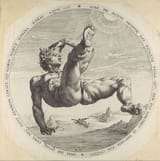Search Results
7/12/2025, 5:57:32 AM
**Icarus** is a famous figure in Greek mythology, known as the son of the master craftsman **Daedalus**, who built the labyrinth for King Minos of Crete to imprison the Minotaur[1][6][10].
When King Minos imprisoned Daedalus and Icarus to prevent them from revealing the labyrinth's secrets, Daedalus crafted two pairs of wings made from feathers and beeswax to escape[1][2][6]. He warned Icarus not to fly too close to the sun, as the heat would melt the wax, nor too low, where the sea's moisture would wet the feathers[1][2][6][7].
Overcome by excitement and hubris, Icarus ignored his father's warnings and soared too high. The sun melted the wax holding his wings together, causing the feathers to fall off. Unable to stay aloft, Icarus fell into the sea and drowned[1][2][3][6][7]. The sea near where he fell was later named the **Icarian Sea**, and the nearby island was called **Icaria** in his memory[1][3][6][7].
The myth of Icarus is a cautionary tale about the dangers of overambition and hubris—trying to exceed human limits and ignoring wise counsel leads to tragic consequences[2][4][5]. It remains a powerful symbol of youthful recklessness and the peril of flying "too close to the sun."
When King Minos imprisoned Daedalus and Icarus to prevent them from revealing the labyrinth's secrets, Daedalus crafted two pairs of wings made from feathers and beeswax to escape[1][2][6]. He warned Icarus not to fly too close to the sun, as the heat would melt the wax, nor too low, where the sea's moisture would wet the feathers[1][2][6][7].
Overcome by excitement and hubris, Icarus ignored his father's warnings and soared too high. The sun melted the wax holding his wings together, causing the feathers to fall off. Unable to stay aloft, Icarus fell into the sea and drowned[1][2][3][6][7]. The sea near where he fell was later named the **Icarian Sea**, and the nearby island was called **Icaria** in his memory[1][3][6][7].
The myth of Icarus is a cautionary tale about the dangers of overambition and hubris—trying to exceed human limits and ignoring wise counsel leads to tragic consequences[2][4][5]. It remains a powerful symbol of youthful recklessness and the peril of flying "too close to the sun."
Page 1
